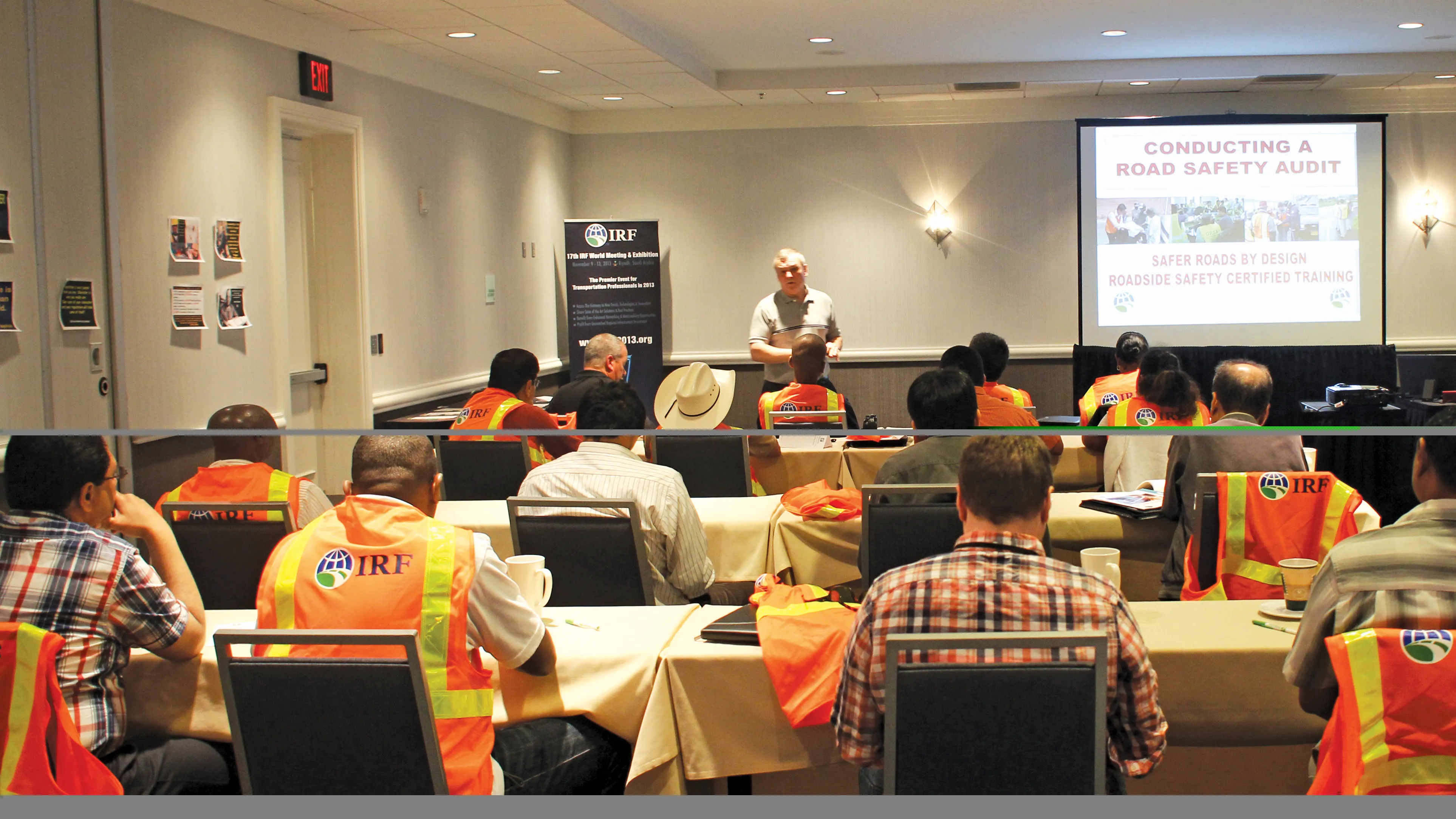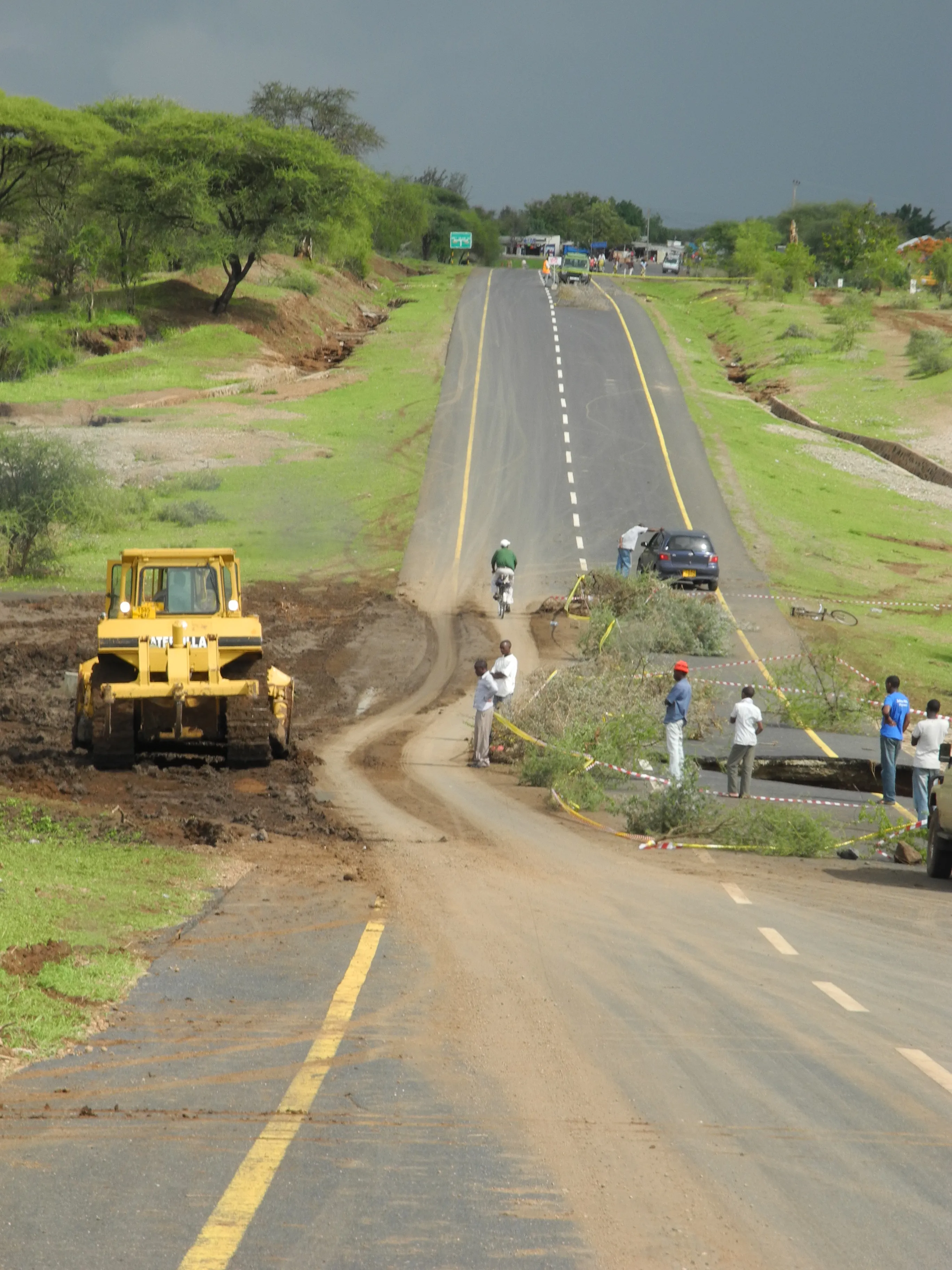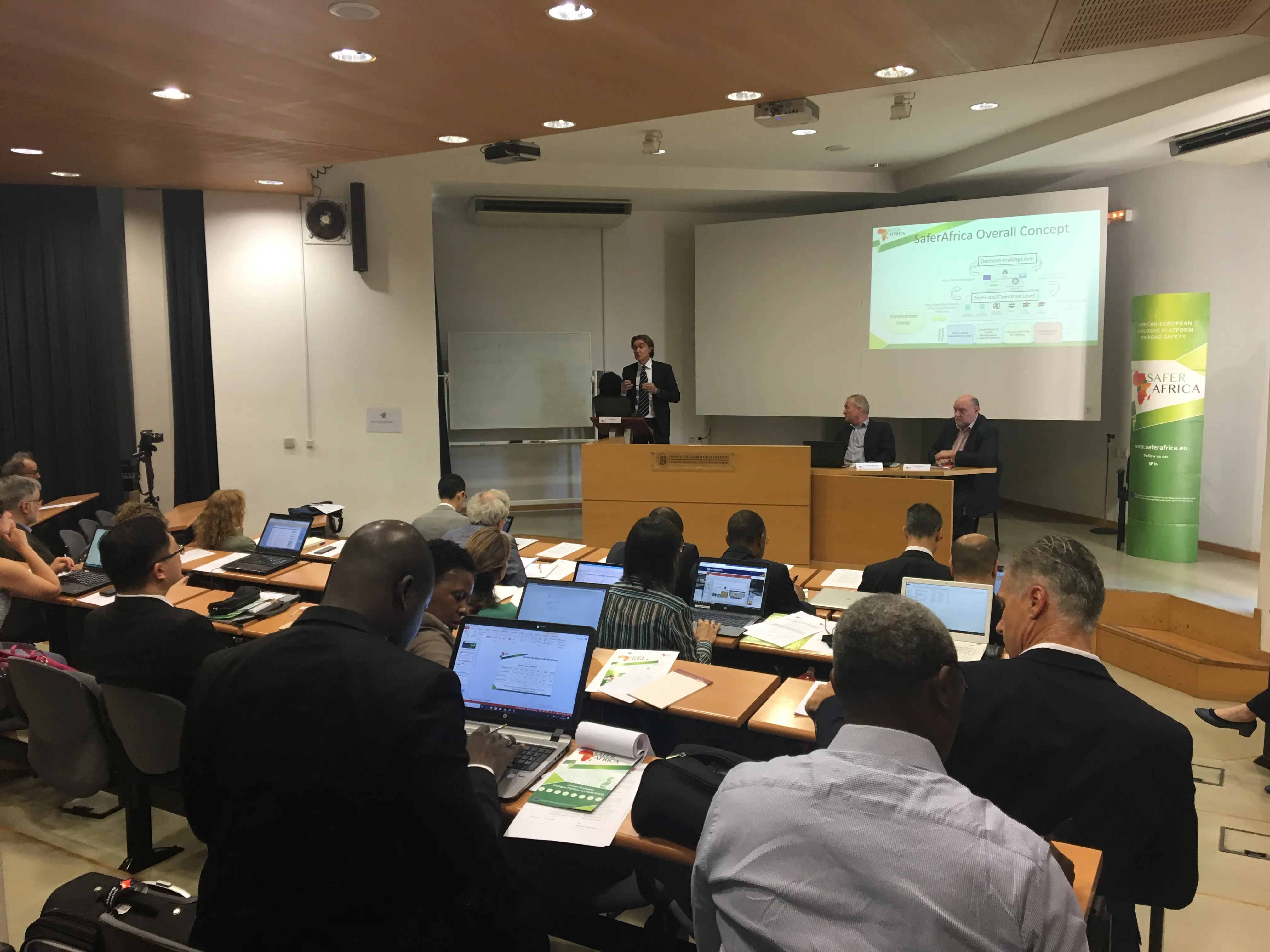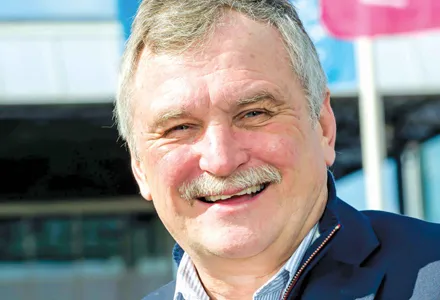As a strong believer in continuing education, the IRF has long provided road and transportation professionals worldwide with educational and professional development opportunities and resources. This has been delivered through a global training curriculum aimed at providing technical expertise in classroom and practical settings where attendees can learn from and have direct access to seasoned professionals. Each course not only provides the most relevant, up-to-date information and best practices and solut
September 15, 2015
Read time: 2 mins

24 training courses offered in 12 Countries throughout 2015
As a strong believer in continuing education, the IRF has long provided road and transportation professionals worldwide with educational and professional development opportunities and resources. This has been delivered through a global training curriculum aimed at providing technical expertise in classroom and practical settings where attendees can learn from and have direct access to seasoned professionals. Each course not only provides the most relevant, up-to-date information and best practices and solutions, but is also designed to assist attendees in learning to correctly apply the knowledge gained. In all the IRF is offering 24 courses in 12 countries throughout 2015.
This year has already seen important developments in IRF’s global training curriculum, including the opening of a second training hub in Kuala Lumpur, Malaysia and a new executive training program on PPPs in the Road Sector. According to Magid Elabyad, IRF vice president for International Programs & Member Services, “The course will involve a detailed discussion of key success factors such as building capacity within the public and private sector, the necessary policy and legal frameworks, optimal risk sharing practices, and available tools to assess the financial viability of projects. In addition, the program will examine successful examples from both emerging and developed economies and present some practices and tools that can be utilised under different country conditions.”
Certificates delivered to alumni of IRF’s training programs are widely accepted by professional institutions such as Engineering and Transportation Societies. Additionally, the IRF is a participant in Registered Continuing Education program (RCEP) in the United States. RCEP-approved certifications are widely accepted around the world.
As a strong believer in continuing education, the IRF has long provided road and transportation professionals worldwide with educational and professional development opportunities and resources. This has been delivered through a global training curriculum aimed at providing technical expertise in classroom and practical settings where attendees can learn from and have direct access to seasoned professionals. Each course not only provides the most relevant, up-to-date information and best practices and solutions, but is also designed to assist attendees in learning to correctly apply the knowledge gained. In all the IRF is offering 24 courses in 12 countries throughout 2015.
This year has already seen important developments in IRF’s global training curriculum, including the opening of a second training hub in Kuala Lumpur, Malaysia and a new executive training program on PPPs in the Road Sector. According to Magid Elabyad, IRF vice president for International Programs & Member Services, “The course will involve a detailed discussion of key success factors such as building capacity within the public and private sector, the necessary policy and legal frameworks, optimal risk sharing practices, and available tools to assess the financial viability of projects. In addition, the program will examine successful examples from both emerging and developed economies and present some practices and tools that can be utilised under different country conditions.”
Certificates delivered to alumni of IRF’s training programs are widely accepted by professional institutions such as Engineering and Transportation Societies. Additionally, the IRF is a participant in Registered Continuing Education program (RCEP) in the United States. RCEP-approved certifications are widely accepted around the world.









